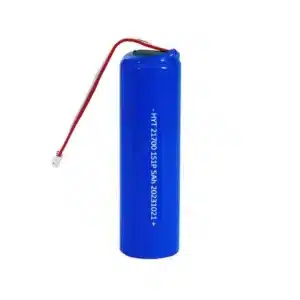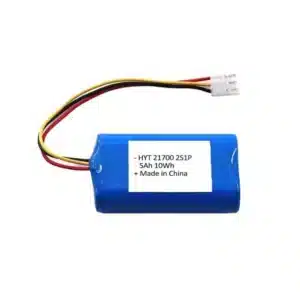Emergency Light Battery
Emergency lights are essential equipment that provide illumination in commercial buildings, office buildings, and residences during power outages. Lithium batteries, as the core component of emergency lights, offer a reliable power supply. While lead-acid, nickel-cadmium, and lithium batteries are all rechargeable options, they each possess unique advantages and characteristics.
Lithium batteries for emergency lights are specifically designed for emergency lighting systems, as they offer high energy density and provide reliable power over extended periods. These batteries are typically rechargeable and can last several years before needing replacement.
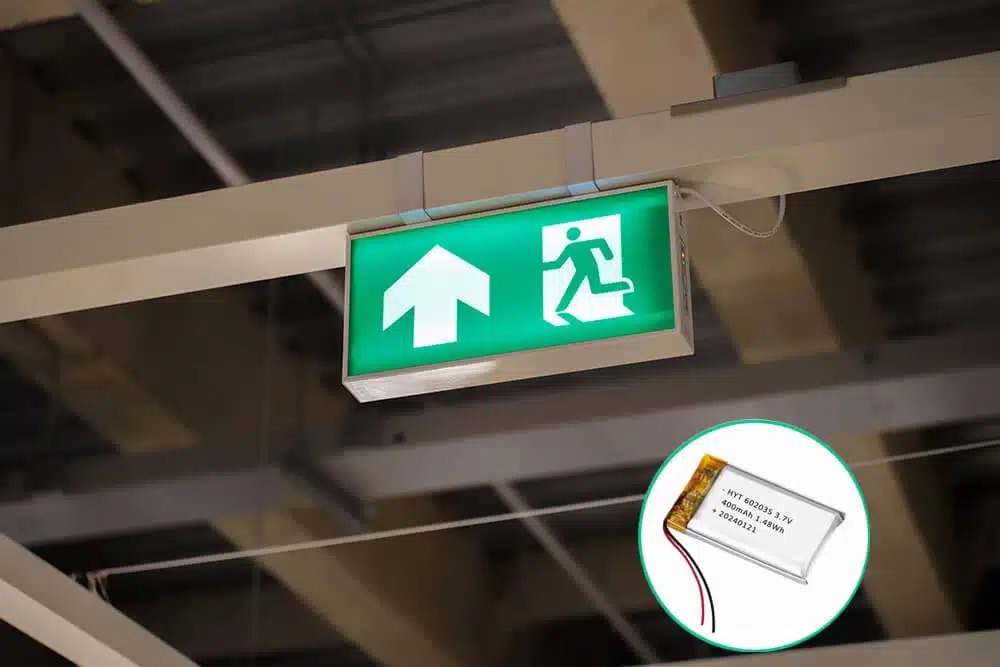
High Energy Density
Emergency light batteries, often using lithium or lithium iron phosphate cells, possess a high energy density, allowing them to store more electrical energy and thus provide longer illumination times.
Long Cycle Life
Lithium batteries typically have a cycle life exceeding 500 cycles, reducing the frequency of replacements and lowering maintenance costs.
High Safety
Lithium batteries are generally equipped with built-in protection boards that prevent overcharging, over-discharging, and short circuits.
Low Maintenance
Emergency light batteries are typically designed to be low-maintenance, requiring only periodic inspection and testing.
emergency light batteries Product
Emergency lights primarily rely on rechargeable batteries to power their illumination. The larger the battery capacity, the longer the lighting duration. When selecting a battery, it’s crucial to ensure it fits the flashlight and functions correctly.
We produce a range of polymer batteries equipped with protection boards to prevent overcharging, over-discharging, and short circuits. Custom battery solutions are also available to meet your specific needs.
- Emergency lights with battery backup
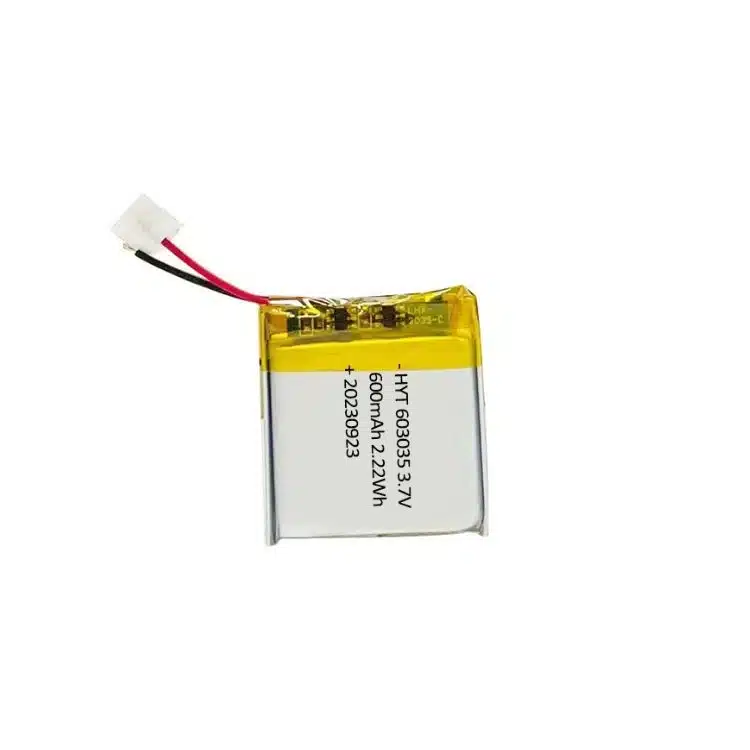
603035 3.7V 600mAh Battery
Nominal voltage: 3.7V
Nominal capacity: 600mAh
Rated energy: 2.22Wh
Thickness: ≤6.0mm
Widness: ≤30.0mm
Length: ≤35.0mm
Internal resistance: ≤75mΩ
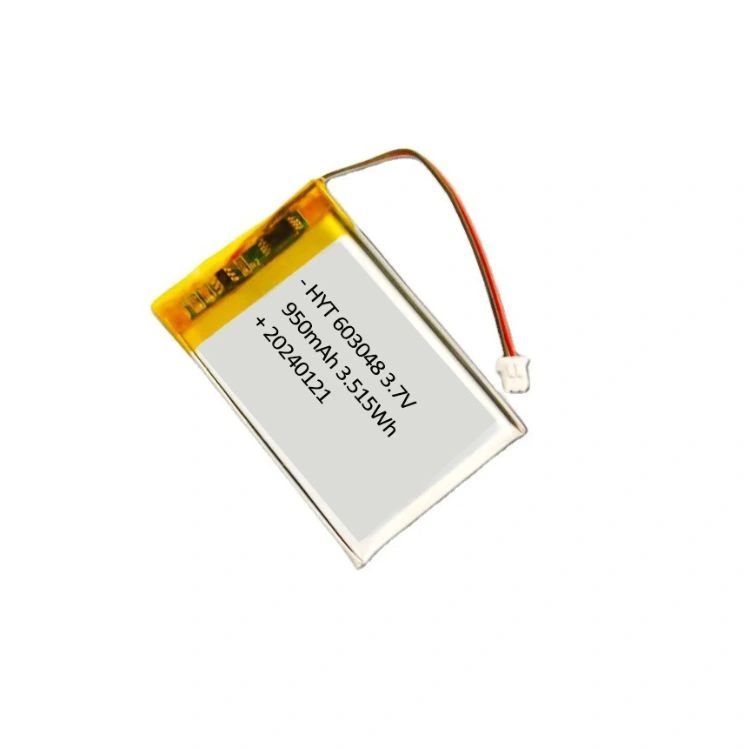
603048 3.7V 950mAh Battery
Nominal voltage: 3.7V
Nominal capacity: 950mAh
Rated energy: 3.515Wh
Thickness: ≤6.0mm
Widness: ≤30.0mm
Length: ≤48.0mm
Internal resistance: ≤60mΩ
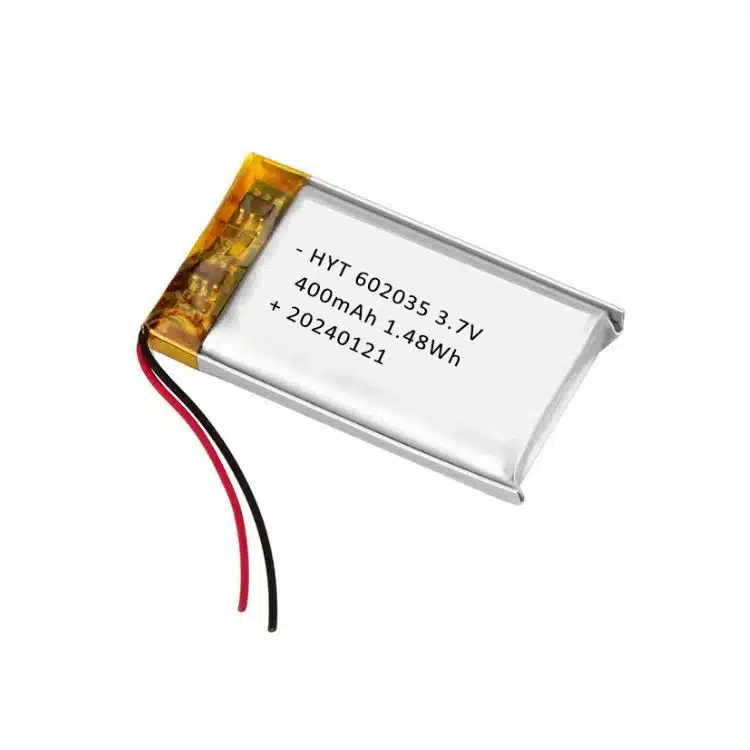
602035 3.7V 400mAh Battery
Nominal voltage: 3.7V
Nominal capacity: 400mAh
Rated energy: 1.48Wh
Thickness: ≤6.0mm
Widness: ≤20.0mm
Length: ≤35.0mm
Internal resistance: ≤100mΩ
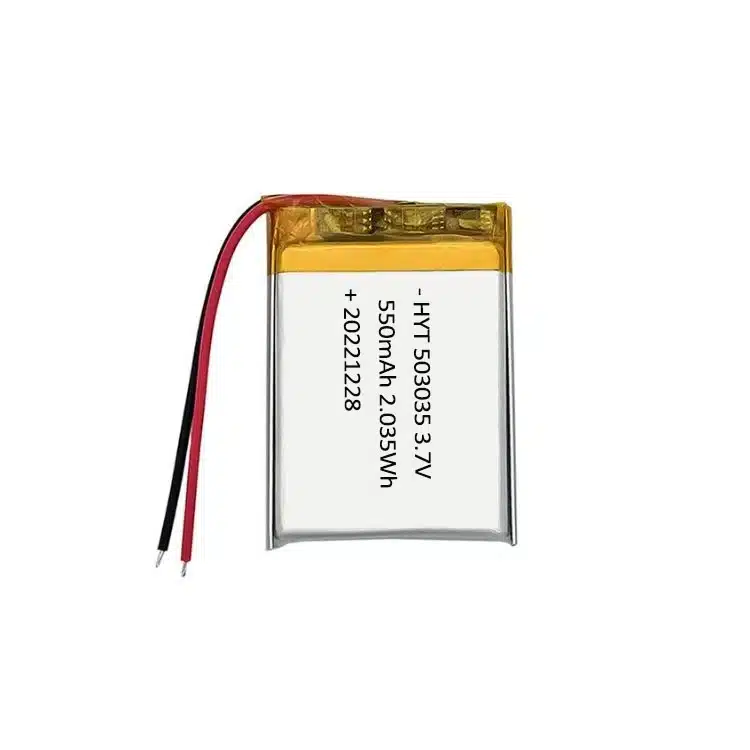
503035 3.7V 550mAh Battery
Nominal voltage: 3.7V
Nominal capacity: 550mAh
Rated energy: 2.035Wh
Thickness: ≤5.0mm
Widness: ≤30.0mm
Length: ≤35.0mm
Internal resistance: ≤80mΩ
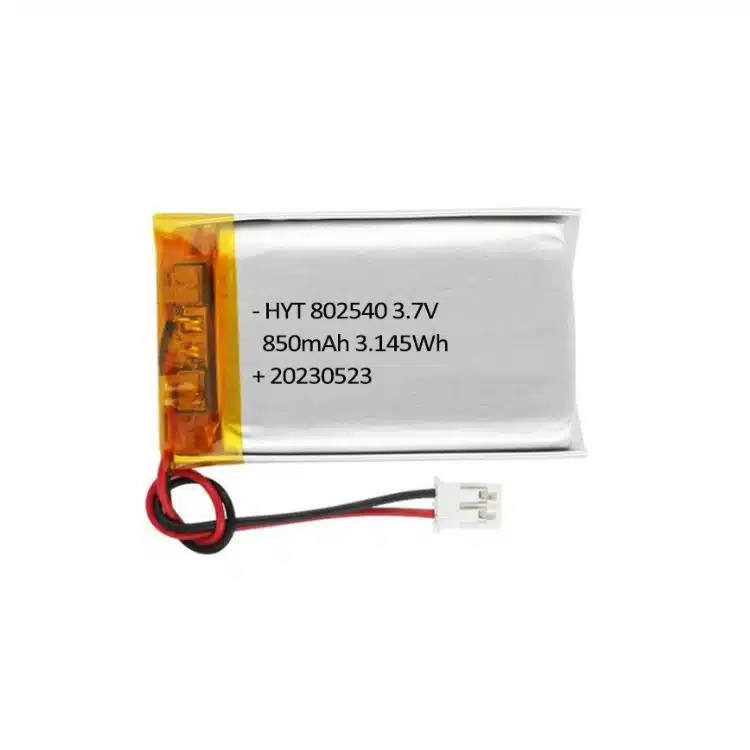
802540 3.7V 850mAh Battery
Nominal voltage: 3.7V
Nominal capacity: 850mAh
Rated energy: 3.145Wh
Thickness: ≤8.0mm
Widness: ≤25.0mm
Length: ≤40.0mm
Internal resistance: ≤70mΩ
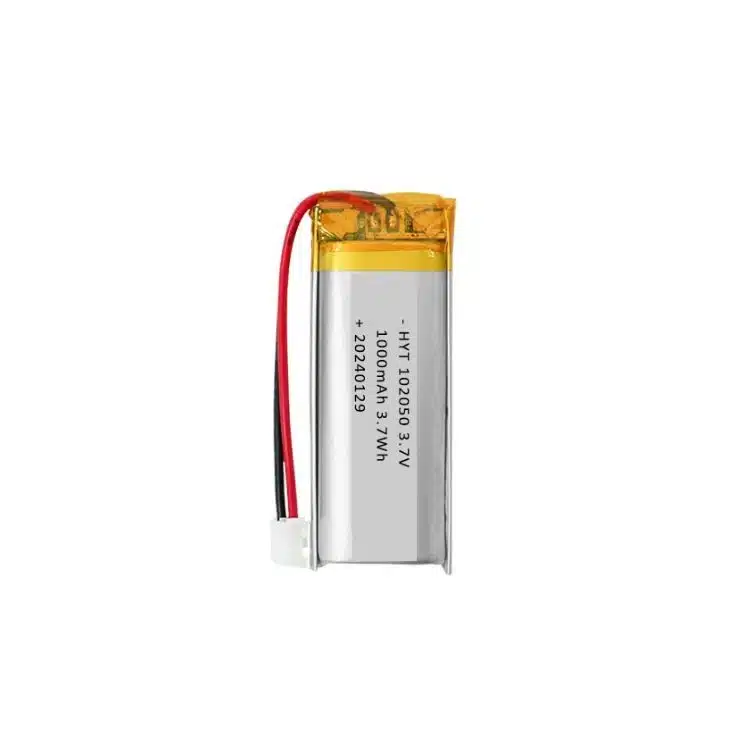
605080 3.7V 3000mAh Battery
Nominal voltage: 3.7V
Nominal capacity: 3000mAh
Rated energy: 11.1Wh
Thickness: ≤6.0mm
Widness: ≤50.0mm
Length: ≤80.0mm
Internal resistance: ≤60mΩ
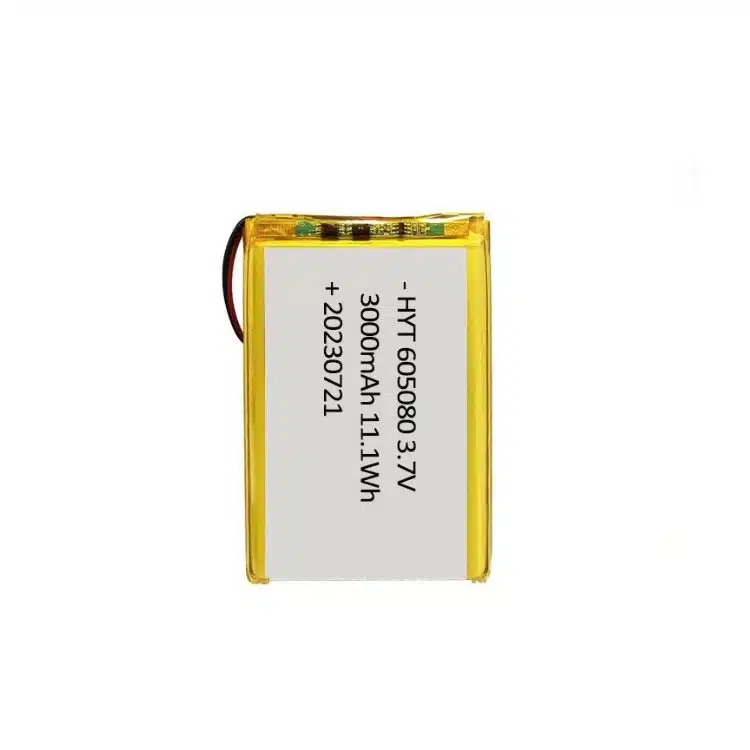
102050 3.7V 1000mAh Battery
Nominal voltage: 3.7V
Nominal capacity: 1000mAh
Rated energy: 3.7Wh
Thickness: ≤10.0mm
Widness: ≤20.0mm
Length: ≤50.0mm
Internal resistance: ≤70mΩ
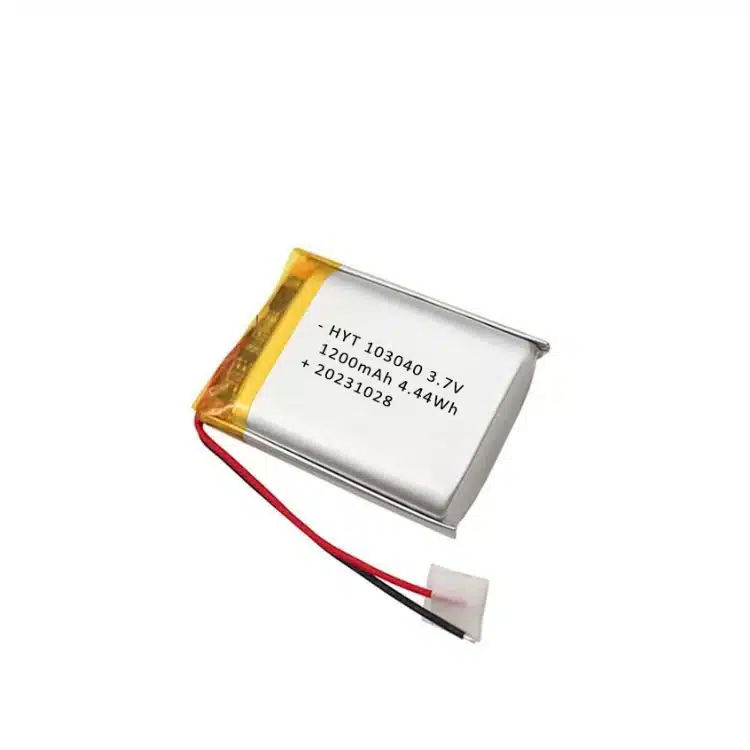
103040 3.7V 1200mAh Battery
Nominal voltage: 3.7V
Nominal capacity: 1200mAh
Rated energy: 4.44Wh
Thickness: ≤10.0mm
Widness: ≤30.0mm
Length: ≤40.0mm
Internal resistance: ≤60mΩ

Applications for emergency exit lights with battery backup
Emergency lights play a crucial role in various emergency situations, ensuring the safety and effective evacuation of people. Some primary applications include:
- Commercial and public spaces: Offices, hospitals, schools, shopping malls, and entertainment venues often have high foot traffic. Emergency lights provide essential illumination to help occupants locate exits during emergencies.
- Residential areas: Emergency lights can provide illumination during power outages, reducing the risk of accidents.
- Large event venues: Such as airports, train stations, and large event centers, emergency lights guide audiences to safety in case of emergencies.
Why do emergency lights use lithium batteries?
Lithium batteries have become increasingly popular in emergency lighting due to their superior performance, safety, and environmental friendliness. Here are the primary reasons for their widespread use:
- High Energy Density: Lithium batteries can store more energy in a smaller space compared to lead-acid or nickel-cadmium batteries.
- Longer Lifespan: With a typical lifespan of 6 years, lithium batteries require less frequent replacement and maintenance.
- Lightweight: Their lightweight design makes lithium batteries easy to install and replace, especially in ceiling or wall-mounted emergency lights.
- Safety: Our lithium batteries are equipped with overcharge, over-discharge, and short-circuit protection, making them safer than traditional lead-acid batteries.
- Environmental Friendliness: Lithium batteries are recyclable and pose minimal environmental harm, making them an eco-friendly choice.
- No Memory Effect: Lithium batteries can be charged and discharged at any time without experiencing a “memory effect.”
- Low Maintenance: Unlike nickel-cadmium batteries, lithium batteries require minimal maintenance.
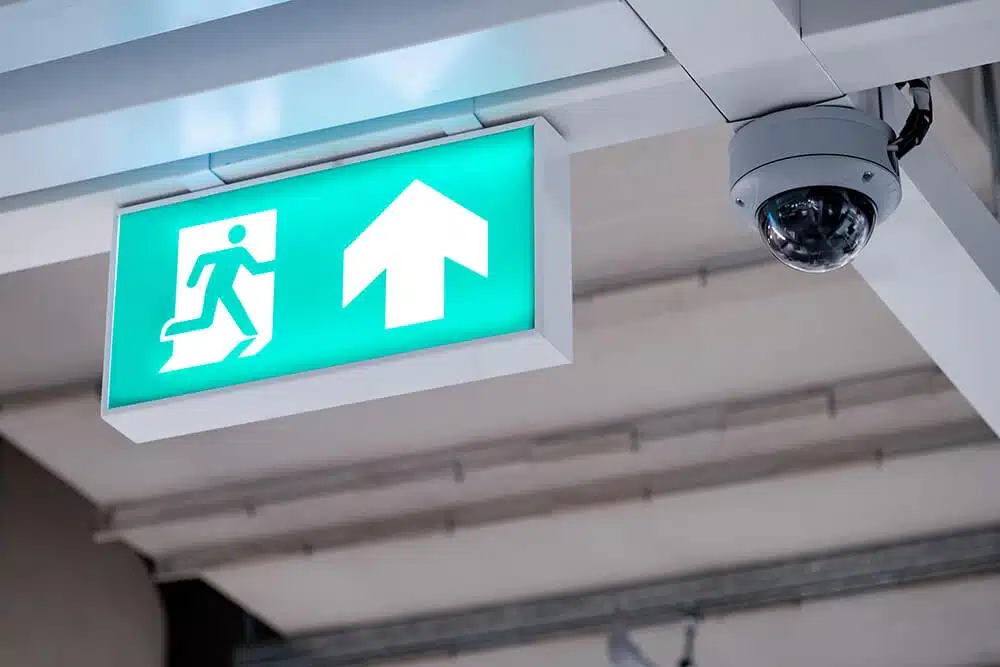
FAQs for best batteries for flashlights
Most emergency lighting systems require batteries with voltages ranging from 3.7V to 24V.
Safety standards mandate that emergency lighting batteries must provide continuous power for at least 90 minutes during a power outage.
Emergency lighting batteries typically have a lifespan of 4-5 years, depending on the ambient temperature and installation location. Generally, lithium batteries can last for over 5 years.
